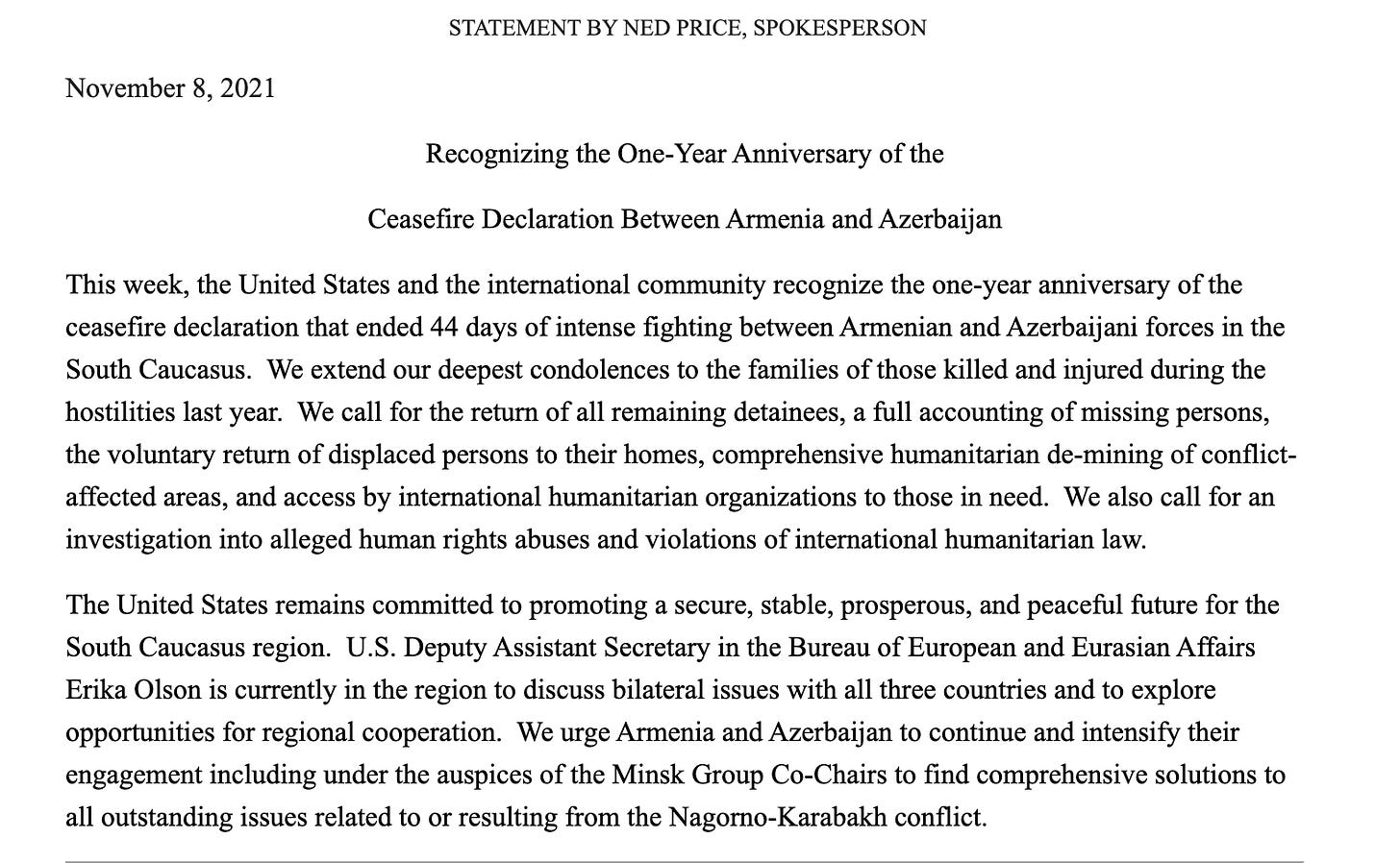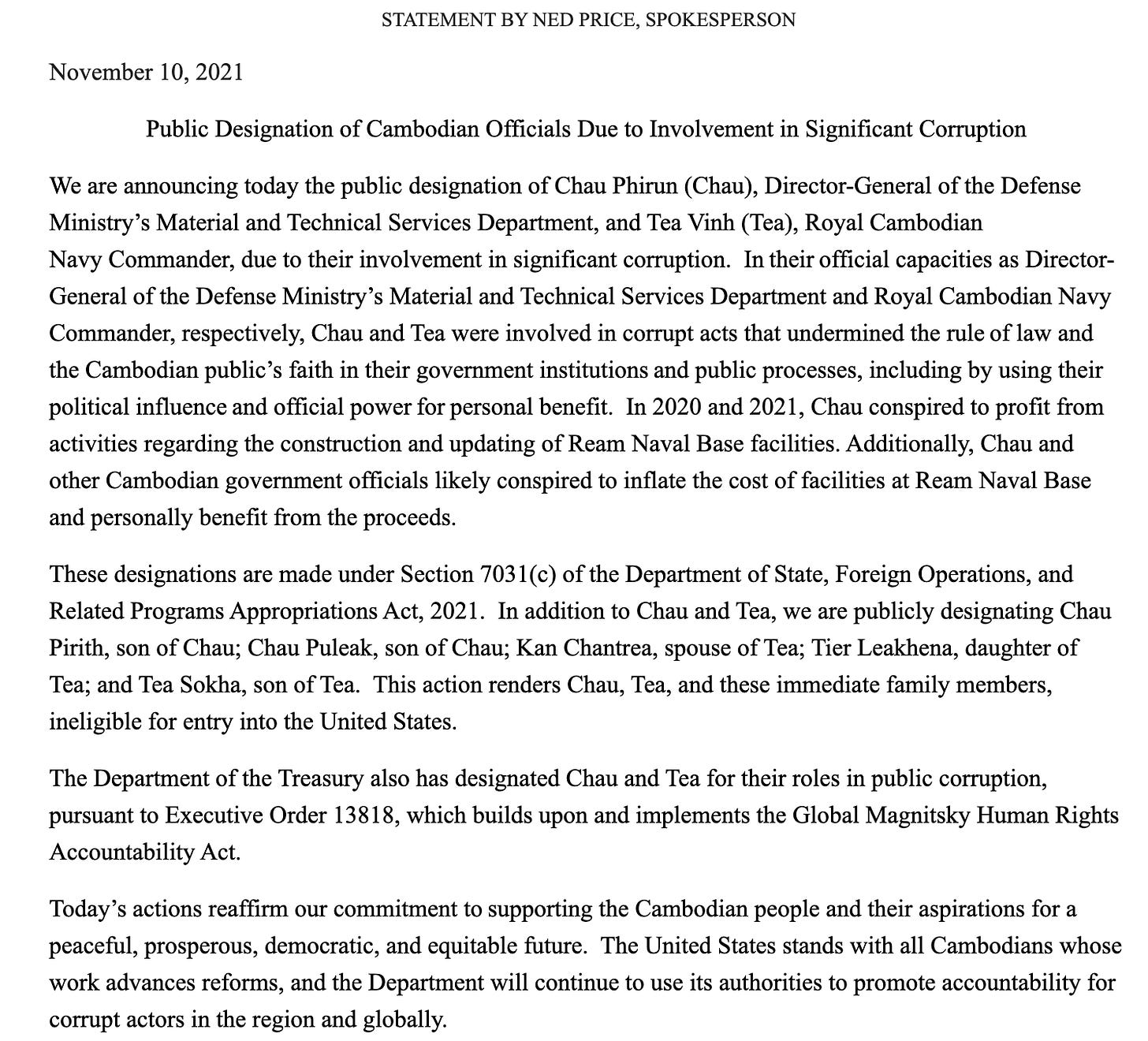About Bosnia's existential crisis.
Hello, all! Cristina here. This weekend I'm treating you to a somewhat nerdy conversation about what the hell is going on in Bosnia and Hercegovina.
For our interview, I spoke with political scientist Jasmin Mujanović about why experts are warning that Bosnia could be on the verge of breaking up.
But first, please send story tips or recommendations to c.maza@protonmail.com. And don't forget 👇👇
Upgrade to a premium subscription by Clicking Here.
Cristina: I understand that Bosnian Serb politician Milorad Dodik has put forward proposals that would essentially separate the Serbian entity Republika Srpska (RS) from the rest of Bosnia and Hercegovina. But he has made threats like this before. Why is he being taken more seriously now?
Jasmin: The reason it's being taken more seriously is becaƒuse he laid out very concrete steps that he wants to take, and he has actually begun taking these steps.
Bosnian media published a memorandum that his party submitted to the Republika Srpska assembly, which outlines over the course of 100 some pages in detail all of the so-called competencies they believe have been unduly transferred from the entity level to the Bosnian state.
He is really driving towards a sort of de fact secession by proposing such a profound degree of separation from the state institutions of Bosnia and Hercegovina and the creation of parallel institutions. That is a secession in all but name.
Indeed, he has explicitly threatened that not only would he recreate the VRS, the former Bosnian-Serb army, but he has also threatened to use Republika Srpska's security services to expel government officials from the territory of RS.
It's a very alarming set of escalating steps that he is taking.
He has refrained from saying this is explicit secession. He has framed it as going for what he calls "the original Dayton," which is a completely spurious concept that he's invented, or has had lobbyists concoct for him.
But it's being seen by the Office of the High Representative and other foreign observers as the most serious crisis since the end of the war.
Cristina: Is the alarm primarily because of what Dodik is doing, or are there other factors that are weakening the state?
Jasmin: Dodik's efforts are the centerpiece, and I can't remember if we've ever had such an explicit report from the High Representative.
The opening paragraph says very explicitly that Bosnia and Hercegovina finds itself in an existential crisis and there is the threat of a resumption of conflict.
It makes very clear that this is the most serious political and perhaps security crisis since the end of the war.
Then there is the surreal aspect that, as we are reading this report, it is the first time that a High Representative has been prevented from addressing the UN Security Council because of the growing clout and interference and involvement of the Russian Federation on behalf of Dodik.
That's where we get this sinister geopolitical bent that is very alarming to a lot of ordinary Bosnians.
But Dodik is not alone in this sense. Aside from the support that he gets from Russia or from Belgrade, without which he couldn't do any of what he is doing, the reality is he has a tremendous amount of support from the Croat nationalist establishment and the HDZ in particular.
Cristina: What is the legal basis for the proposals Dodik is putting forward? Has any legal argument been made for why his proposals should be permitted under the Dayton Agreement?
Jasmin: No, there isn't any legal basis. Dodik's argument is that there has been an illegal transfer of authority from the entities level to the state level. He accuses the High Representative of having done a great deal of this.
But he neglects to mention that most of the competencies, including the formation of the Bosnian armed forces, were done through acts of the Bosnian parliament. They are legal by every definition of the term.
Specifically, the way he is proposing to address all of these presumed illegalities is that the Republika Srpska national assembly will simply pass resolutions and laws that he claims will somehow magically overrule the Bosnian constitutional court, the OHR, and the Bosnian parliament.
This framing that Dodik is using, that they are pulling out of particular laws and particular institutions, is not a thing that exists in the real world.
You can either overturn a law through an act of parliament, you can go to the courts, and the courts may strike down a law, and that's kind of it.
Technically, in Bosnia, you can appeal to the OHR, and the OHR can then issue a new law that would overturn the existing law. There are avenues to address his grievances.
But what he's saying is that a subnational unit, an administrative region of the Bosnian state, has the authorities and competencies to overrule state authorities, and state judiciary, and state executive, which again, is not a thing.
That's why we go back to the point that this is secession in all but name because he is assuming power for Republika Srpska that he can only assume by going outside of the established legal order of the country.
He is by definition undermining the constitutional order of Bosnia and Hercegovina and the country's rule of law.
Cristina: What has the response been from people in Republika Srpska? Is this a politically popular move?
Jasmin: It's a little bit hard to tell. The RS opposition parties have been extremely critical of Dodik's push. They have characterized this as his own personal gambit and one that is very much imperiling the entity's existence.
They think that in the event of a serious crisis in Bosnia, it's possible it will go very badly for supporters of the RS.
What the attitude of the public at large is, it's tough to tell. One must keep in mind that Dodik has created a quasi police state in the entity, a quasi autocracy.
We have seen the weakening of the regime take place over the last few years. In particular, we saw it on display during the previous local elections in Bosnia when they lost the mayoral race in a number of key cities, including the capital of the region, Banja Luka.
I think that gives us a little bit of a sense of why he is doing this. He understands that despite all of his efforts to turn the RS into a private fiefdom, there are enough residual quasi-democratic avenues, largely thanks to the entities being embedded in Bosnia and Hercegovina as a whole.
He is concerned that there is a scenario in which he could lose power through elections.
The problem for Milorad Dodik is that he knows that when that happens, or if that happens, he has really only two options. He is going to end up like Nikola Gruevski, and he'll be in exile in someplace like Budapest or Moscow, or Belgrade. Or, he's going to be in prison.
There is no option in which Milorad Dodik retires and hangs out, or he becomes a ho-hum opposition leader. That is not the way this thing is going to go.
He knows that, so for him, he has painted himself into such a corner that he has to create a very dramatic situation in which he can preserve his own political and personal freedom.
That is fundamentally what is animating a lot of this. Notwithstanding that, he is a true believer in the ideological project of Serb nationalism in Bosnia.
What I'm writing:
• I wrote about the escalating conflict in Ethiopia and a new bill in Congress to sanction anyone responsible for derailing peace negotiations.
• I wrote about the U.S. and EU response to the ongoing crisis on the border between Belarus and Poland, Latvia, and Lithuania. The European Union plans to announce new sanctions against Belarus as early as next week, and the White House intends to follow suit. This piece is unlocked.
What I'm reading:
• Petr Fiala, the head of the Czech Republic's Together coalition, will be appointed as the country’s next head of government as Czech Prime Minister Andrej Babiš steps down, Politico Europe reports.
• In North Macedonia, a bid to topple Prime Minister Zoran Zaev's government stalled after the opposition failed to reach a quorum because one MP went missing, Balkan Insight reports. Zaev announced his resignation last month but never actually stepped down.
• A man wanted by the FBI for allegedly participating in the January 6 attack on the U.S. Capitol is seeking political asylum in Belarus, Radio Free Europe reports.
• A coordinated action against the REvil cybercrime group was announced by the U.S. Department of Justice (DOJ), Europol, and the Romanian police. Two alleged hackers, one from Romania and one from Ukraine, were both arrested. The Justice Department also seized $1.6 million in cryptocurrency from the group. You can read the indictment here.
• U.S. Deputy Secretary of State Gabriel Escobar traveled to Bosnia and Hercegovina to calm rumblings of potential violence. “The most important thing we agreed with all of the interlocutors we met today is that we all agreed that there will be no war," Escobar said, according to Balkan Insight. U.S. special envoy Mathew Palmer was also in the country to push for electoral reform.
• The situation on the border between Poland and Belarus escalated this week, with armed Belarusian authorities escorting hundreds of migrants, including children, toward the European Union. Some videos showed shots being fired, allegedly to keep the migrants from returning to Belarus. Politico Europe has the report. In response, Poland's interior ministry sent 12,000 troops to the border with Belarus and used teargas to stop migrants from crossing.
• Poland’s Prime Minister Mateusz Morawiecki accused Russian President Vladimir Putin of “masterminding” the migrant crisis on Belarus’s border with the E.U., the Guardian reports.
• Poland warned of a possible “armed” escalation on its border with Belarus, the BBC reports.
• Russia deployed strategic bombers to Belarus’s airspace amid escalating tensions between Belarus and Poland, the Wall Street Journal reports.
• Russia blamed the E.U. for the migrant crisis on the border between Belarus and Poland and sent bombers to fly over Belarus, Reuters reports.
• Lukashenko threatened to cut off Russian gas flowing to Europe via Belarus, Politico Europe reports.
• Bloomberg reports that the U.S. is discussing with the E.U. concerns that Russia may be preparing for an invasion of Ukraine.
• The Russian Defense Ministry accused the U.S. military of “aggressive” action in the Black Sea, Reuters reports.
• Ukraine’s Foreign Affairs Minister Dmytro Kuleba said Russia may be looking to “move further” into Ukraine, ABC news reports.
• I recommend Ben Makuch's piece for VICE on the bizarre coup attempt by pro-MAGA mercenaries in Venezuela. Aside from being interesting, it's very well-written.
• Mexican authorities made their first arrest in connection to Israeli security firm NSO Group’s Pegasus malware, according to a statement from their Attorney General's office.
• The 9th U.S. Circuit Court of Appeals in San Francisco said that Facebook could pursue a lawsuit accusing Israel's NSO Group for exploiting a glitch in its WhatsApp messaging app to install the Pegasus malware, The Wire reports.
• Nicaraguan President Daniel Ortega quashed dissent by detaining at least seven political rivals and won the country’s election last weekend, the BBC reports.
• Brazilian President Jair Bolsonaro is receiving support from former President Donald Trump and his allies to question the legitimacy of Brazil's presidential election scheduled for next year, the New York Times reports.
• El Salvador’s President Nayib Bukele deployed the military to patrol the streets in the capital San Salvador and other parts of the country to combat rising homicide rates, Deutsche Welle reports.
• The head of Iran's environment department said Tehran will ratify the Paris climate agreement only if sanctions against the country are lifted, the BBC reports.
• The Houthi forces in Yemen breached a compound in Sanaa that housed the American Embassy and detained Yemeni security employees of the U.S. government, the State Department said.
• Iraqi Prime Minister Mustafa al-Kadhimi was targeted in an assassination attempt by explosive-laden drones at his residence, the Wall Street Journal reports.
• The U.N. Security Council expressed “deep concern” over clashes between troops associated with the Myanmar junta and fighters from a militant group in the Rakhine state, Agence France-Presse reports.
• Myanmar sentenced American journalist Danny Fenton to 11 years in prison, the Guardian reports.
• Ethiopia's Prime Minister Abiy Ahmed ordered citizens to sign up for military training and gave security forces the authority to detain anyone they suspect of cooperating with rebel forces as rebel groups advance on the capital, the Wall Street Journal reports. Tens of tens of thousands of people marched in the capital of Addis Ababa to support Ahmed and accuse foreign media and the U.S. of trying to undermine the prime minister and his government.
• A newly-formed alliance of Ethiopian opposition factions pledged to take down Prime Minister Abiy Ahmed and then form a transitional government, Reuters reports. The alliance is named the United Front of Ethiopian Federalist and Confederalist Force, and it includes the Tigray People's Liberation Front and the Oromo Liberation Army.
• The State Department established a new task force to oversee its “planning, management and logistics" in response to the events in Ethiopia, Foreign Policy reports. I also confirmed this for the article I wrote this week on Ethiopia.
• Two Cambodian officials were blacklisted by the U.S. for their involvement in a corruption scheme at one of Cambodia’s naval bases, Reuters reports.
What the State Department says:
Upgrade to a premium subscription by Clicking Here.
You can also contact me for any reason by writing to c.maza@protonmail.com.








